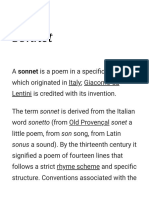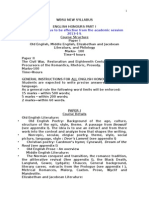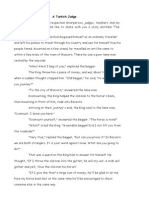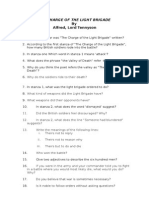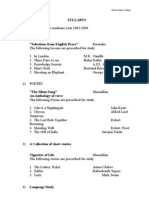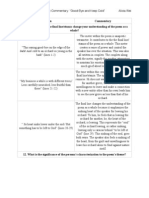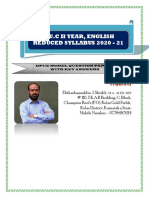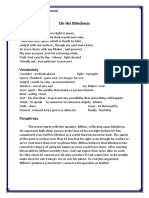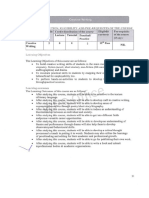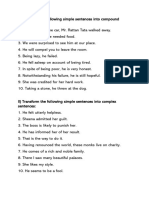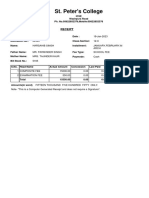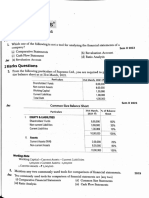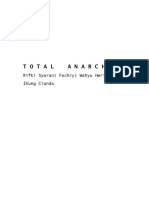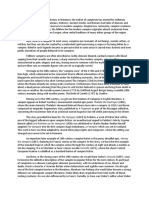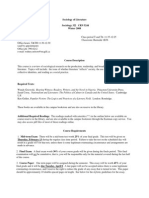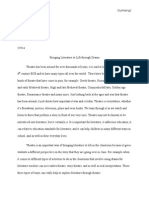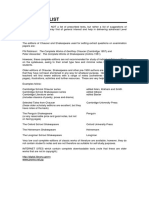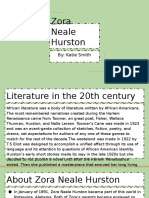100% found this document useful (1 vote)
835 views15 pagesDover Beach
1) Dover Beach describes the speaker's loss of faith while on his honeymoon in Dover.
2) The fading light across the English Channel is a metaphor for the declining light of religion in Victorian England due to advances in science challenging religious doctrines.
3) The receding sea of faith leaves humanity feeling insecure and miserable without the solace that religion once provided.
Uploaded by
Harsahib SinghCopyright
© © All Rights Reserved
We take content rights seriously. If you suspect this is your content, claim it here.
Available Formats
Download as PPTX, PDF, TXT or read online on Scribd
100% found this document useful (1 vote)
835 views15 pagesDover Beach
1) Dover Beach describes the speaker's loss of faith while on his honeymoon in Dover.
2) The fading light across the English Channel is a metaphor for the declining light of religion in Victorian England due to advances in science challenging religious doctrines.
3) The receding sea of faith leaves humanity feeling insecure and miserable without the solace that religion once provided.
Uploaded by
Harsahib SinghCopyright
© © All Rights Reserved
We take content rights seriously. If you suspect this is your content, claim it here.
Available Formats
Download as PPTX, PDF, TXT or read online on Scribd
/ 15



